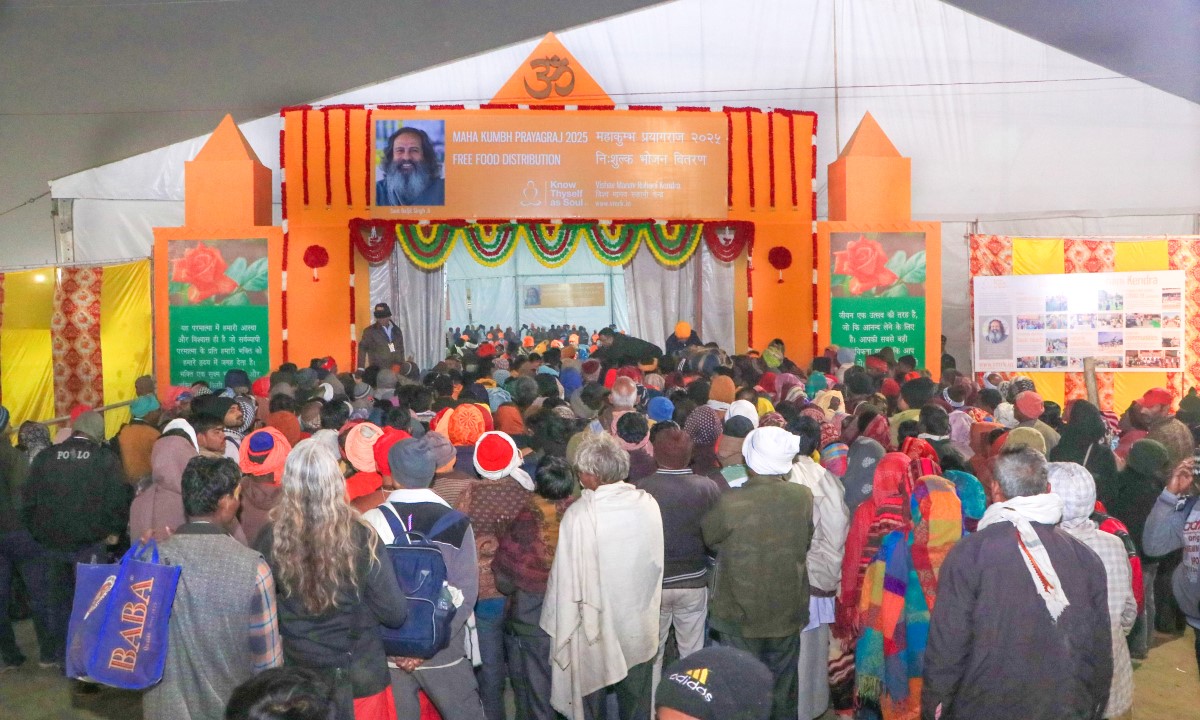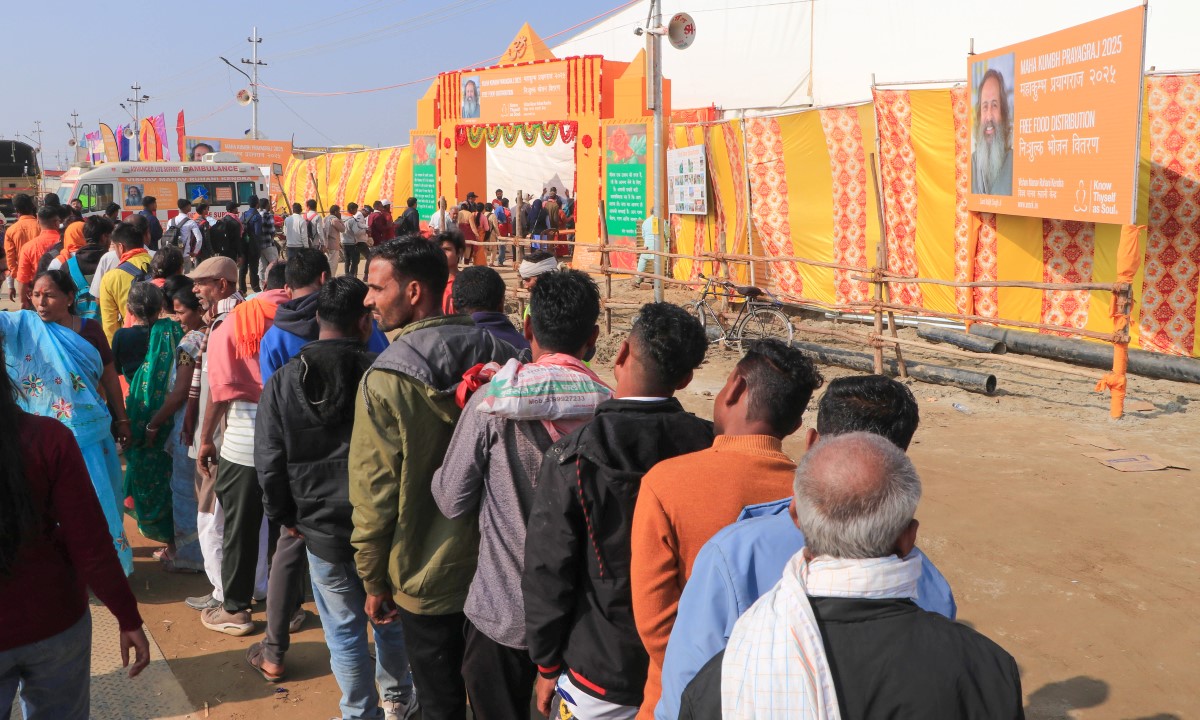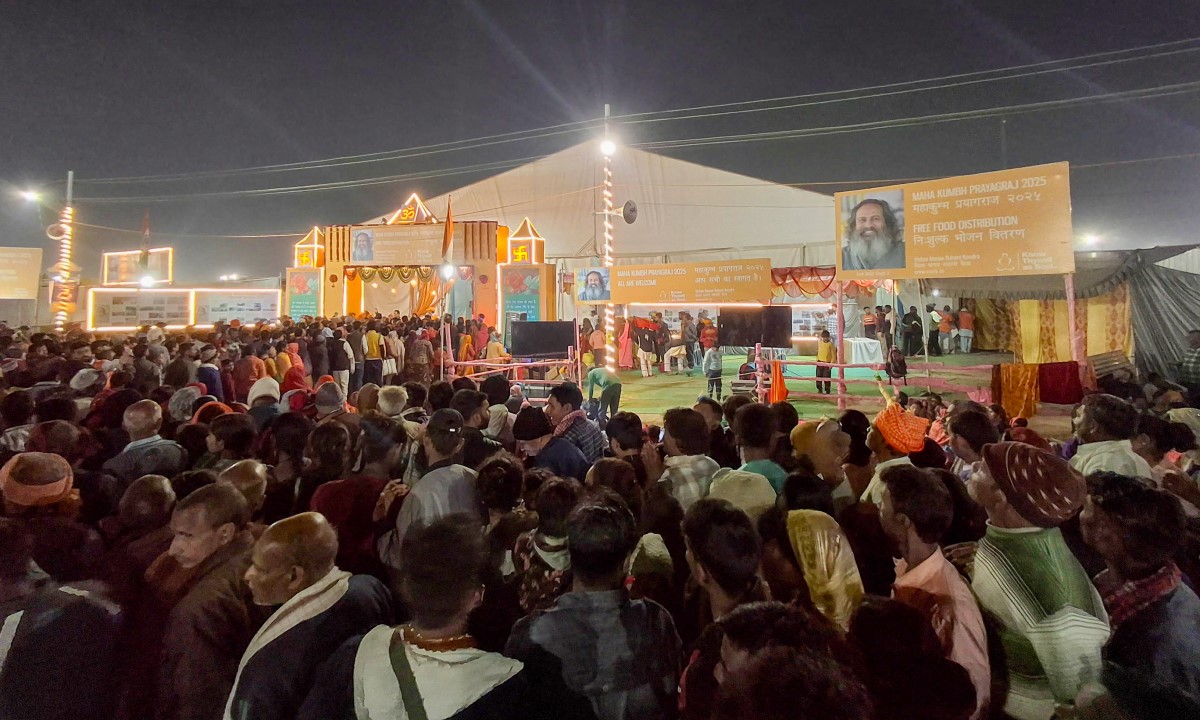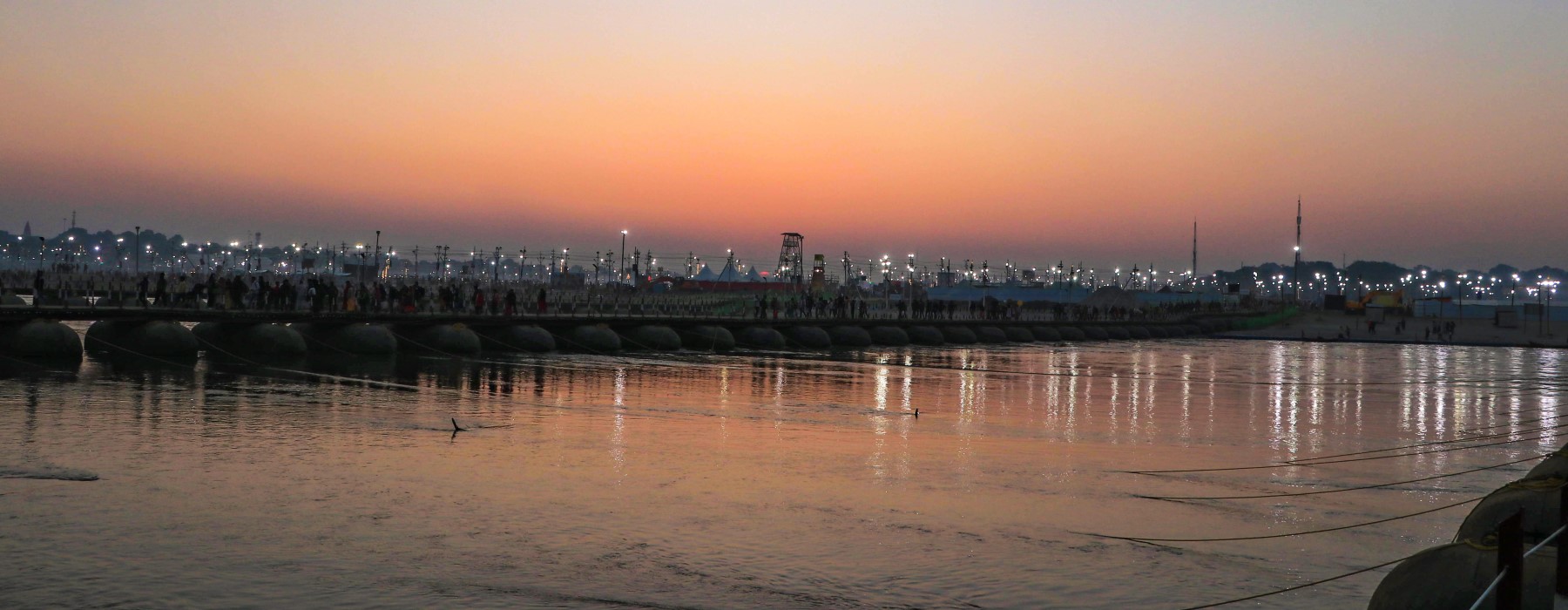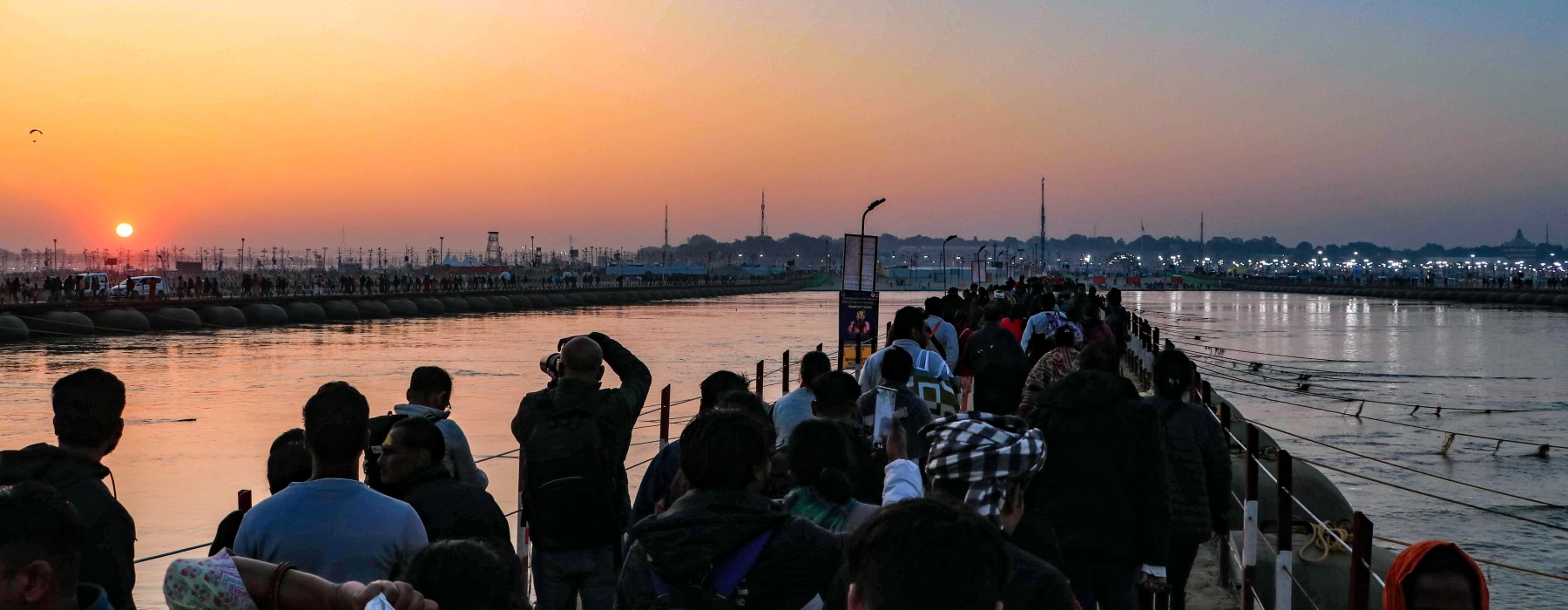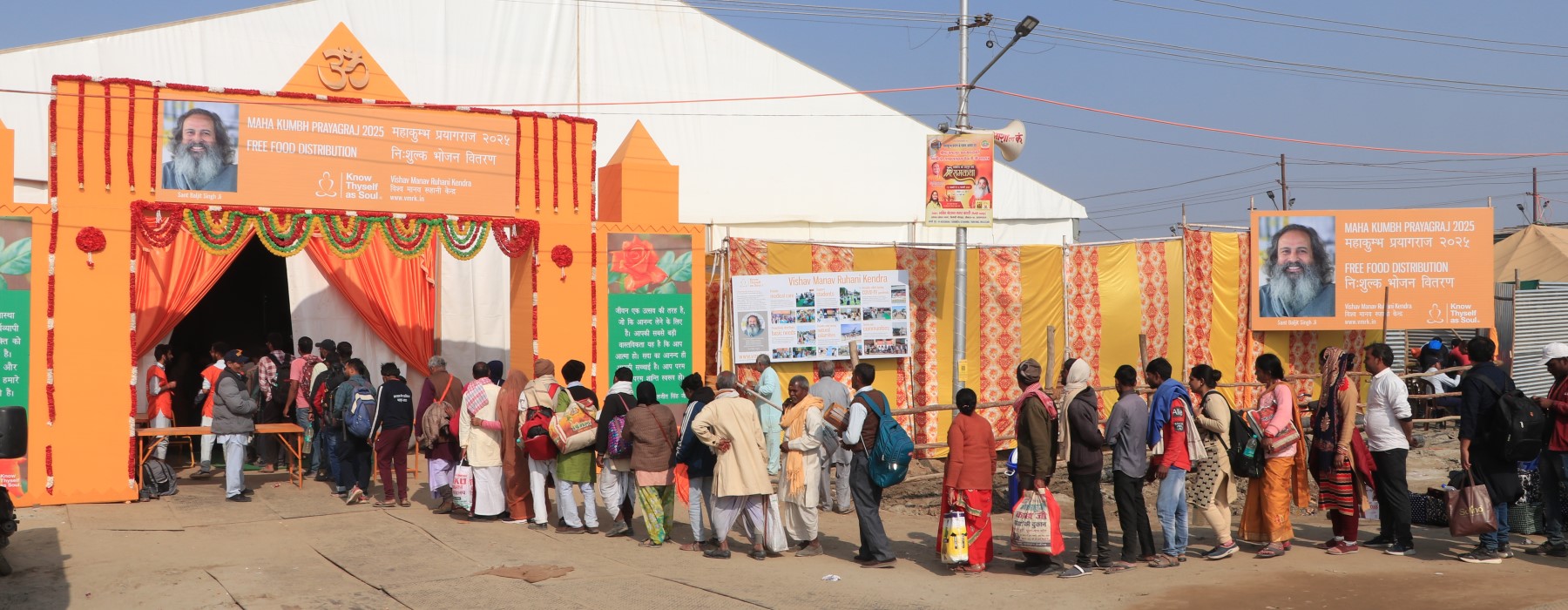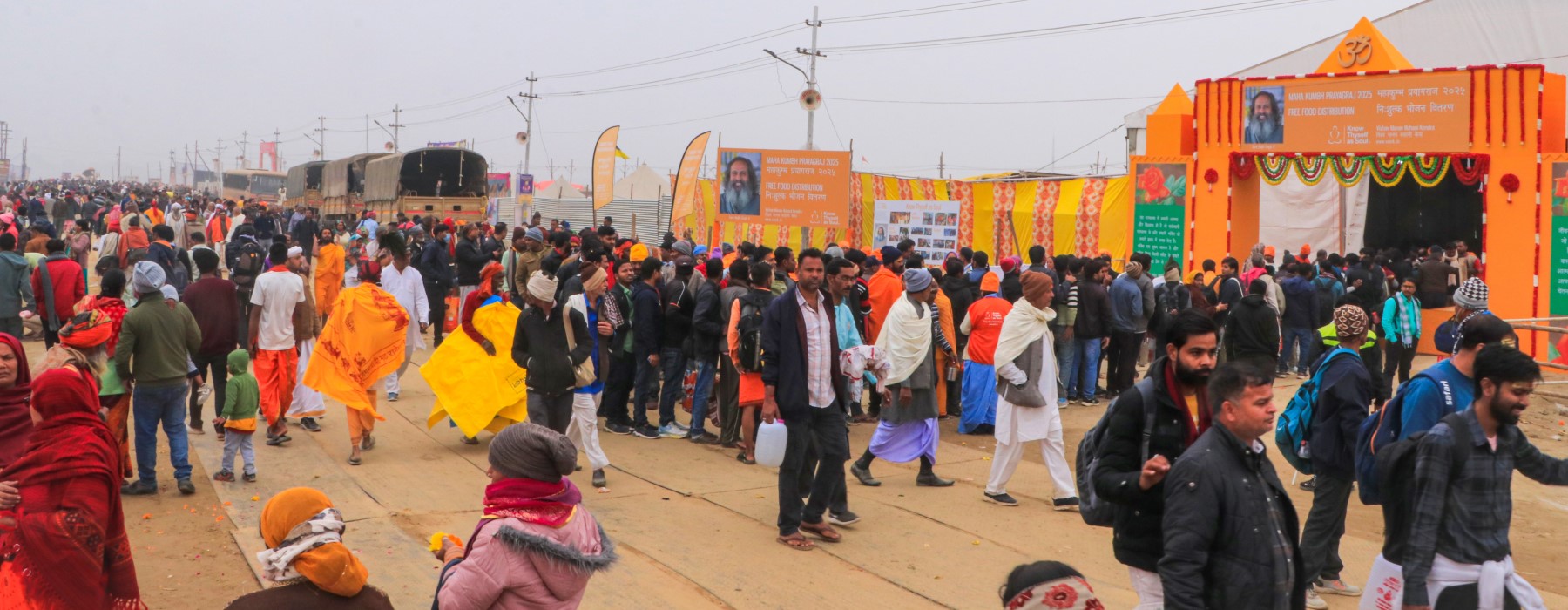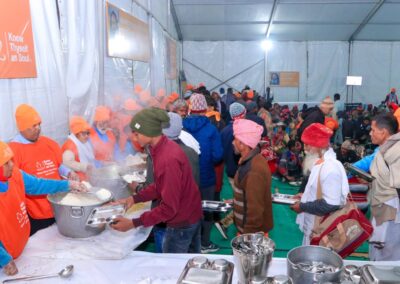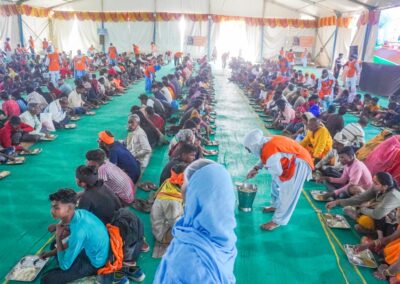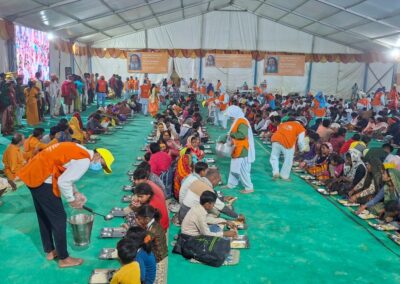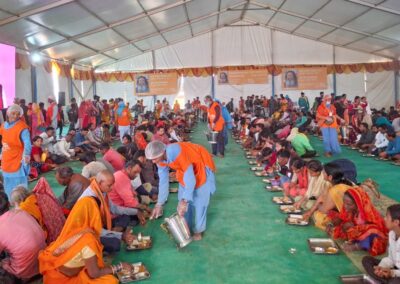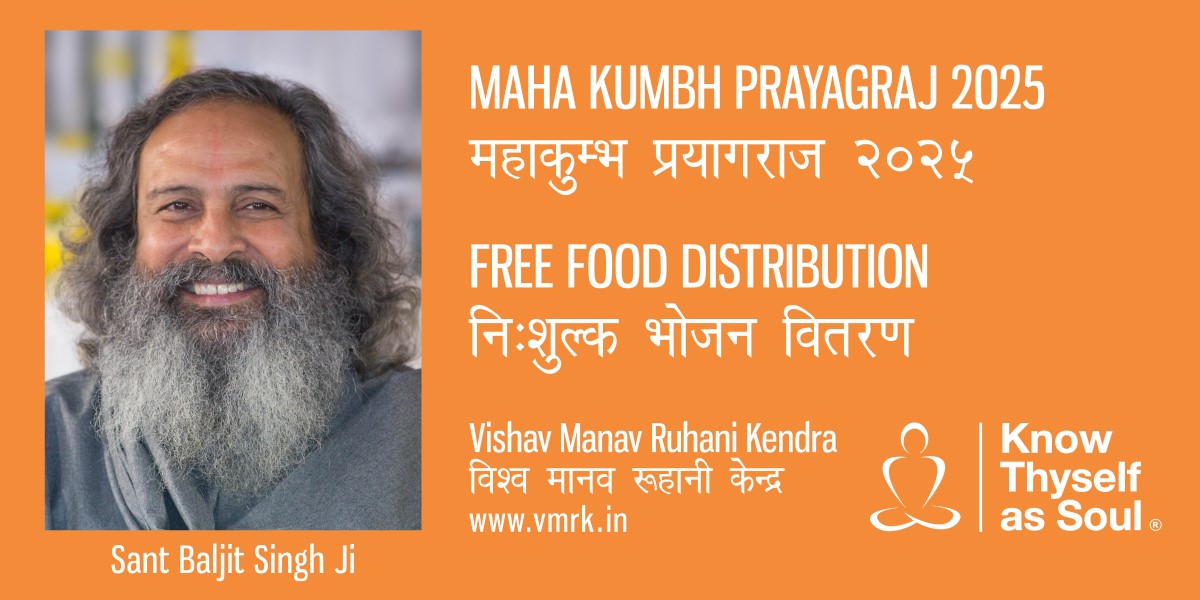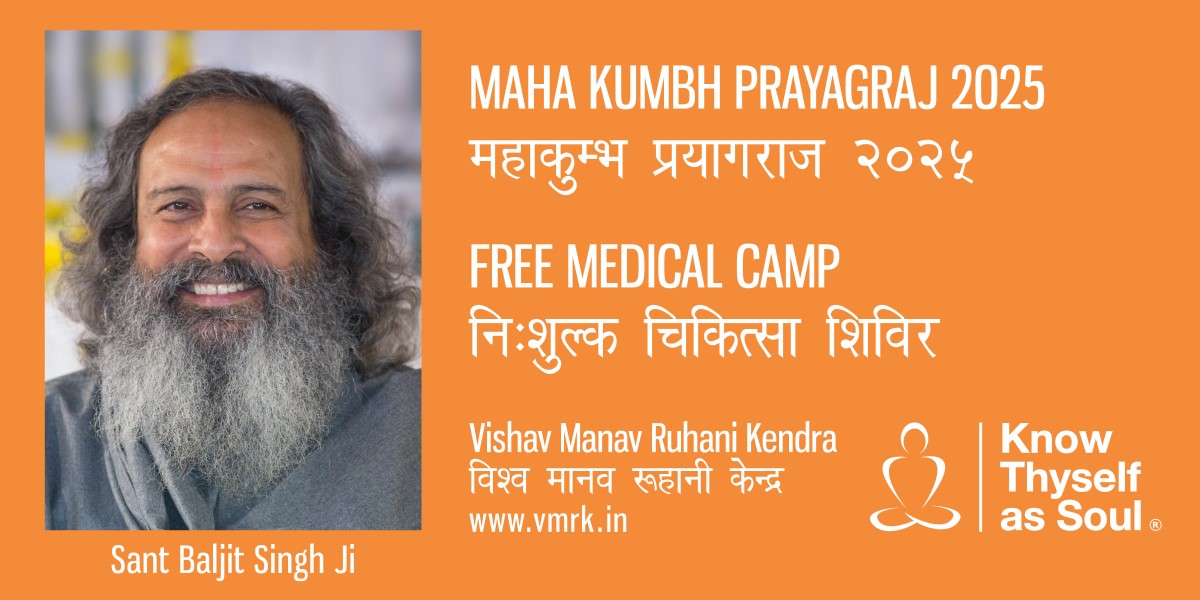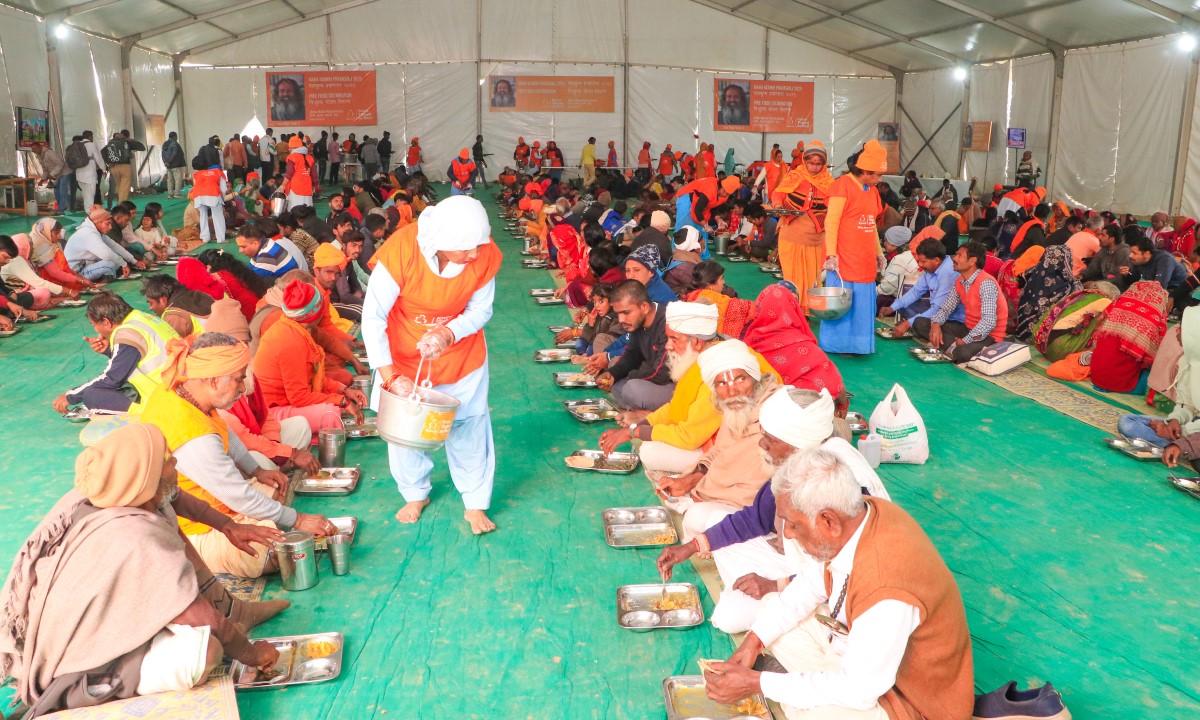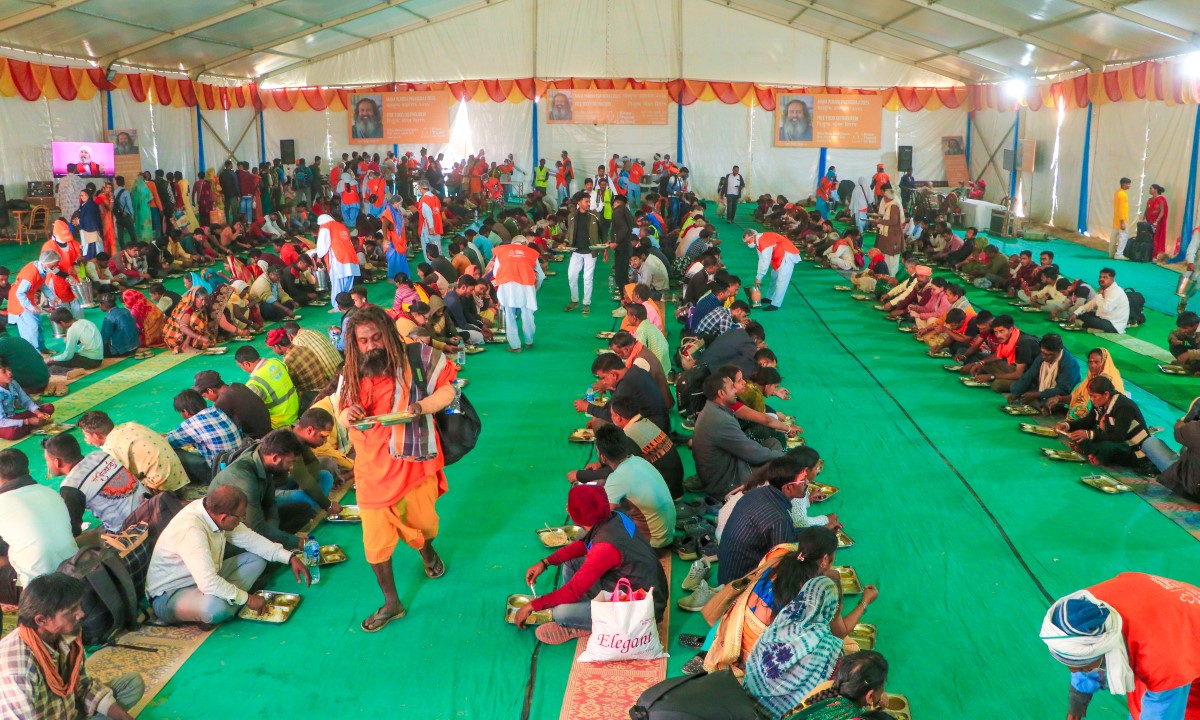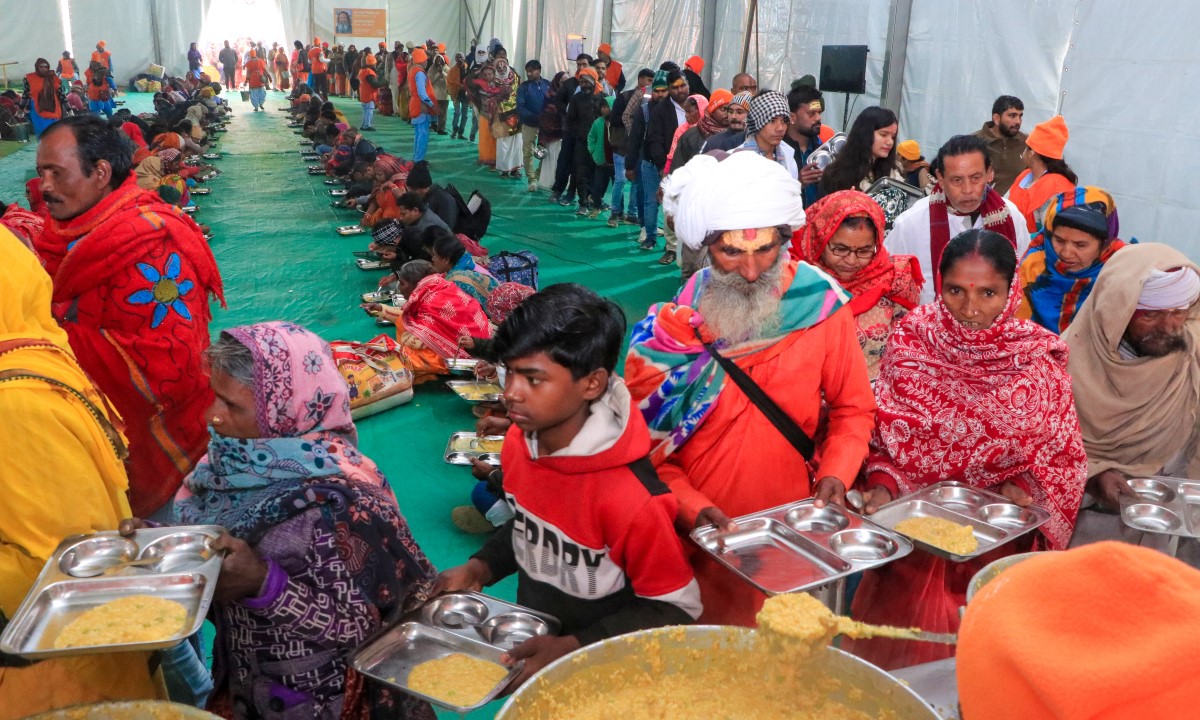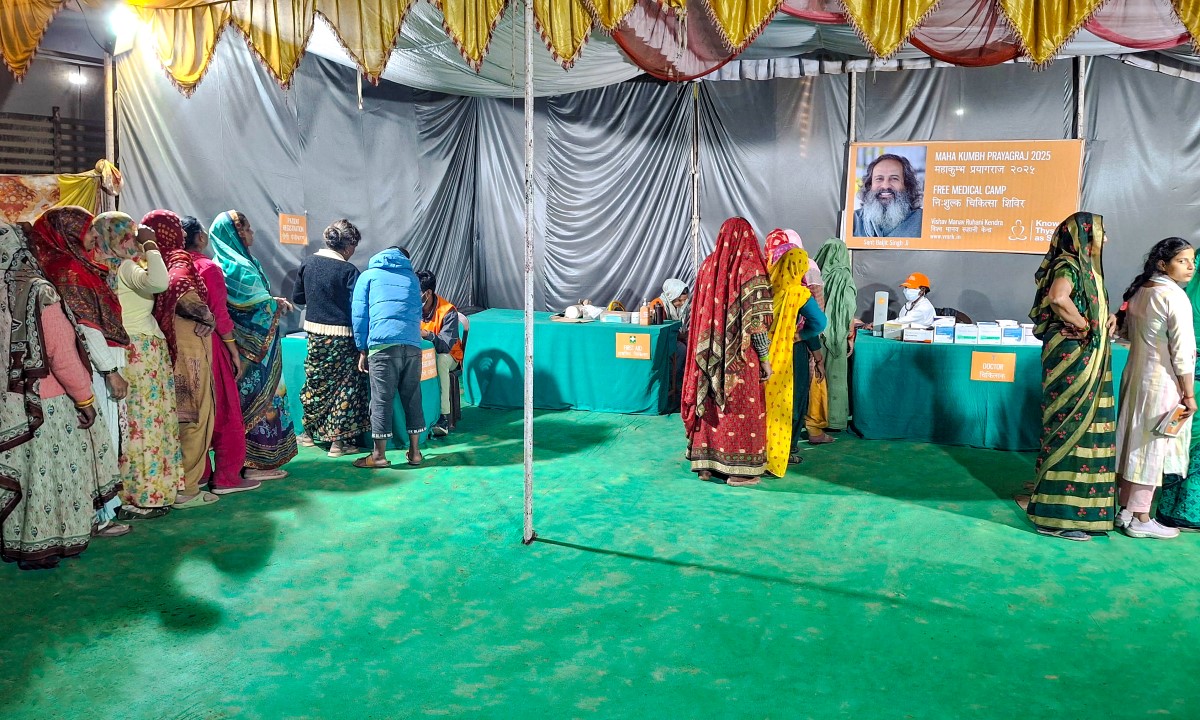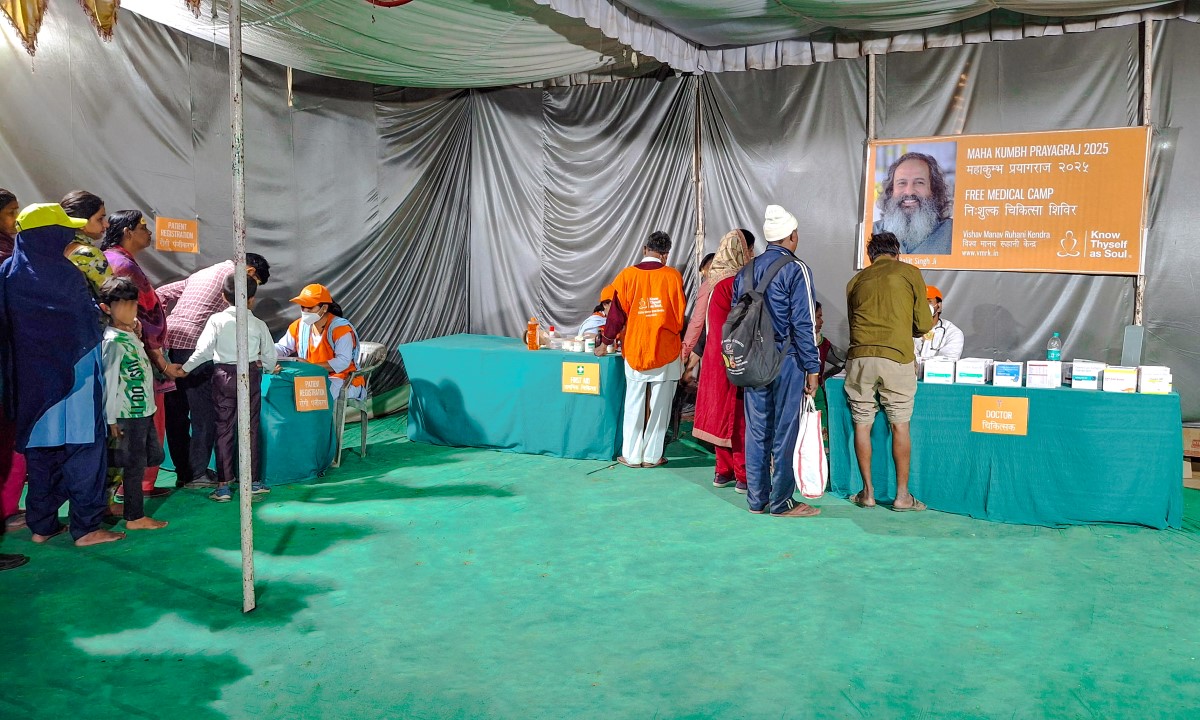Serving devotees at Maha Kumbh Mela 2025
Maha Kumbh Mela 2025 was celebrated at Prayagraj in the Indian state of Uttar Pradesh from January 13 to February 26. It was a momentous occasion due to the rare astrological positions of the Sun, the Moon, and Jupiter. This alignment occurred after 12 cycles of the 12-year Kumbh Mela, which is every 144 years. Millions of devotees at Prayagraj performed the bathing ritual at the Triveni Sangam. This Sangam is the confluence of three rivers—the Ganga, the Yamuna, and the mystical Saraswati. It is believed that by submerging oneself in these holy waters, one can cleanse their sins and move toward spiritual liberation.
Knowing that the Maha Kumbh Mela would be a major attraction, the local administration established a temporary city spanning 4,000 hectares on the banks of the rivers. This city was divided into 25 sectors connected by several major roads referred to as ‘Marg’. The local administration assigned a site near Mahavir Marg in Sector 21 to Vishav Manav Ruhani Kendra (VMRK) to provide food and medical services. This site was located approximately 500 meters from the Triveni Sangam and measured 200 by 200 feet, surrounded by metal sheets.
VMRK received permission for food service on December 21, 2024, while permission for medical and ambulance services was received on January 12, 2025. VMRK is grateful to the local administration for granting permission to serve devotees.
Preparing to serve masses
VMRK made preparations to serve over 30,000 meals daily to devotees. In order to serve such a large crowd over the sustained duration of the Maha Kumbh Mela, VMRK arranged a large German hanger tent, measuring 82 feet by 115 feet for food service. The team prepared a detailed list of utensils and ingredients needed for preparing breakfast, lunch, and dinner. Then VMRK volunteers set out to source and organize all the items. To prepare the huge amount of chapatis needed daily, a chapati-making machine was purchased.
For the medical service, VMRK arranged a tent measuring 45 feet by 23 feet. A team of VMRK volunteers procured, packed, and labeled 13 boxes of medical supplies and equipment.
VMRK also had to plan for the crews to run each service. Given the long duration of the mela, VMRK scheduled batches of volunteers to serve in shifts of 10–15 days. With January and February being winter months in India, VMRK arranged bedding to keep the volunteers warm in their accommodations during the mela. For this, volunteers packed over 1,180 pieces of blankets, quilts, and thin foam mattresses.
Five trucks transported all the materials from Nawan Nagar center to Prayagraj located approximately 953 kilometers away. These trucks, along with an ambulance, left the center in phases between January 1 and January 19 and each trip took approximately 17 hours.
Service continuity throughout the mela was essential and a smooth handover between the shifts of volunteers was critical. Therefore, VMRK operated overlapping shifts by dispatching the next batch of volunteers before each shift concluded. In this way, each new batch was able to arrive early and settle in before they took over from the preceding shift. The first batch of volunteers started arriving on December 27, 2024, to set up the services.
Getting ready to serve
VMRK meticulously planned the layout to make efficient use of the assigned space. First, volunteers erected a welcoming archway over the 15.5-foot wide entrance and decorated it beautifully in traditional Indian style.
The food distribution area was located directly ahead of the entrance. Carpets covered the entire food distribution area and mats were arranged in rows so that devotees could sit comfortably while eating their meals. At the rear end of the area, a metal tent was set up for food preparation, food storage, and washing utensils. Volunteer accommodations were set up in multiple small tents at the assigned site.
At the reception area to the right of the entrance, volunteers were on hand to assist devotees with information about VMRK and its various charitable initiatives. To the left of the entrance was the medical camp with tables set up for patient registration, first aid, patient consultations, and dispensing medicines.
Six LED screens were set up at various locations across the designated site. These screens displayed VMRK’s charitable initiatives and Sant Baljit Singh Ji’s talks from past devotional events. Additionally, as a safety measure, fire extinguishers were strategically placed.
Sant Baljit Singh Ji’s visit
VMRK commenced its food services on January 12, an evening before the beginning of the Maha Kumbh Mela. The same day, Sant Baljit Singh Ji made a surprise visit to the assigned location. This brought a wave of joy among all the volunteers present. Sant Baljit Singh Ji walked through the entire area. Following this, he sat down and had a meal in the seating area designated for devotees. Before leaving, he gave a short talk to everyone present. He encouraged people to think well of everyone and do good to everyone. His visit and words further motivated the volunteers, inspiring them to continue serving the devotees with love and dedication.
DAYS OF SERVICE AT MAHA KUMBH MELA 2025
FREE MEALS SERVED TO DEVOTEES
INDIVIDUALS RECEIVED FREE MEDICAL CARE
VMRK VOLUNTEERS WORKED IN SHIFTS
Serving food with love
To serve the immense crowd, around 200 volunteers worked diligently in shifts. Each day the food service began around 7 am with chai and rusks. Shortly thereafter, wholesome vegetarian meals were served. Our volunteers regularly monitored the food supply throughout the day. When one batch of food was nearly finished, our volunteers immediately started preparing another batch of food. This ensured that the three meals comprising chapati, seasonal vegetables, rice, and pulses were served hot and fresh. The service continued each day as long as devotees kept arriving, sometimes running as late as 2 am.
With so many devotees to serve, the queue usually extended beyond the entrance, so our volunteers used loudspeakers to guide them. Inside the food distribution area, volunteers served meals to the devotees one by one in the queue. The devotees then took their seats in the seating area. To offer additional servings as needed, our volunteers continuously moved through the seating areas. Senior citizens and individuals with special needs were given priority to ensure they did not have to wait long. For their comfort, tables and chairs were arranged, allowing them to dine with ease.
As devotees finished their meals and exited the food distribution area, volunteers were readily available to also offer water. Our volunteers regularly cleaned the food distribution area to ensure a clean and hygienic environment.
Medical care for devotees
VMRK’s medical camp operated from 8 am to 12 midnight daily, starting from January 22. The camp was staffed by a team of six medical professionals and volunteers. In addition, an ambulance was on standby beside the camp to serve devotees requiring emergency medical attention. It was fully equipped with an oxygen cylinder, portable ventilator, multipara monitor, defibrillator, and infusion pump.
Devotees visiting the camp were first registered as patients. Then they waited in the designated seating area until VMRK volunteers guided them to the next available doctor. This worked well to streamline patient consultation. After consultation, patients received medicines prescribed by the doctors. The medical services and medicines were provided free of charge.
Since devotees traveled from far-off places to join the celebration, many experienced ‘traveler’s diarrhea’. Additionally, many devotees came from regions with relatively warmer temperatures. Those who did not dress warm enough for the cold weather conditions in Prayagraj then caught the cold, cough, flu, and fever. In addition to prescribing medicines, the doctors also administered nebulization to enable patients to more easily inhale the misted medication.
Due to the massive crowd, many devotees had to walk up to 10 kilometers to the Triveni Sangam on foot. As a result, patients were also visiting the medical camp with symptoms of weakness, body pain, breathlessness, and dizziness.
Final day
On February 26, the final day of the Maha Kumbh Mela, a large number of devotees visited the mela. Attending the large crowd, VMRK concluded its services by the early afternoon of the following day. Throughout the 47 days of service, VMRK served more than 750,000 meals to devotees and offered free medical care to over 30,990 individuals.
Live media coverage
VMRK’s services during the Maha Kumbh Mela 2025 was reported on live media coverage on February 22 and March 3 in Hindi and English on Aaj Tak News and India Today.
Visitor feedback
Many people left comments in our visitor log, some are listed below:
We visited several places in Prayagraj. The food service offered by Sant Baljit Singh Ji’s organization was found to be excellent. Moreover, the arrangement and service of the volunteers were commendable. The food served was both hygienic and tasty.
This food service is very commendable work. Devotees who do not have arrangements for food and water are receiving support from Sant Baljit Singh Ji’s organization. I have never seen any better work in my life than this, which is being carried out selflessly.
My experience with the food service and the sense of hospitality offered by VMRK at Prayagraj 2025 was excellent. While other camps are serving food as well, the devotion with which food is offered at this camp was not felt elsewhere.
It was a pleasure to visit VMRK’s camp. I greatly appreciate the behavior of all the volunteers here. We couldn’t find better arrangements than this at the Kumbh Mela.
VMRK volunteers have provided the service exceptionally well with such selflessness. Even after serving thousands of people every day, happiness remained on the faces of the volunteers. Meeting the female volunteers felt like meeting my mother at home. In the medical camp too, the volunteers treated us very well. The food service is a big thing to provide. The spirit of service and respect for devotees were present in the volunteers.

